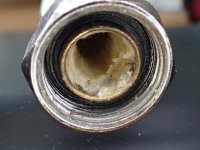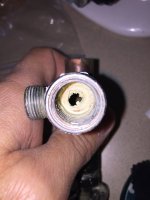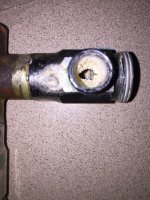Chasing a problem... Saw today that my 20 year old Culligan is constantly flowing a small stream of water out of the discharge hose, even when not regenerating. Am going to have Culligan come out to take a look - they said likely a seal pack needs replacing. Could this issue introduce brine into the water supply?
How do I test to see if my softener is leaking brine into the water supply?
- Thread starter needhelp1
- Start date



